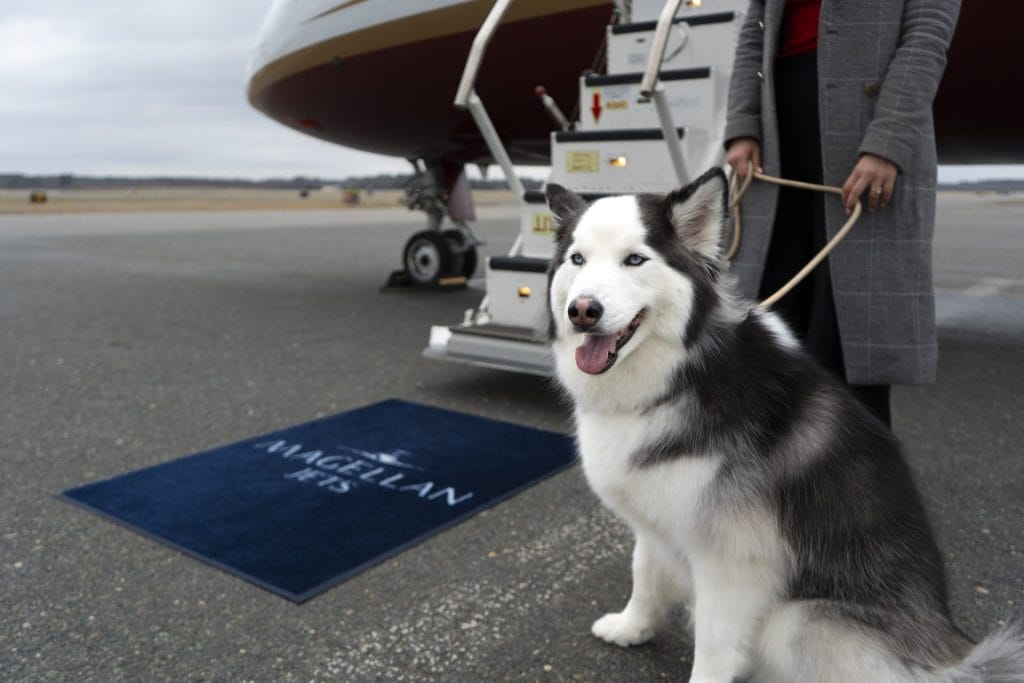
Even if you’re flying privately, the ripple effects of a U.S. government shutdown can extend into every layer of air travel. Air traffic control (ATC), customs, and security all depend on federal staffing. When funding lapses, these essential personnel are sometimes furloughed or working without pay, leading to reduced airspace capacity, longer taxi times, and possible delays for both commercial and private flights.
While luxury travelers enjoy more control over schedules and service, airspace management affects everyone, from a commercial jetliner to a Gulfstream G650.
The ATC Staffing Shortage: How It Affects Everyone

Air Traffic Control (ATC) professionals ensure that every aircraft in U.S. airspace remains safely separated and efficiently sequenced. They manage takeoffs, landings, ground movement, and en-route spacing for both private and commercial operations.
When controller staffing drops, the FAA must slow air traffic to preserve safety margins. That means longer taxi times, delayed departures, and—at times—holding patterns before landing clearance.
What’s Happening Now
According to the FAA, over half of the major control facilities are currently below full staffing levels. Flow programs and ground stops have most affected large hubs like Newark, Boston, Orlando, and across South Florida.
Even private jets are subject to these delays. As Christian Schaible, Senior Director of Safety and Joint Operations at Magellan Jets, explains:
“It doesn’t matter what plane you’re flying. ATC staffing affects everyone. A prolonged government shutdown impacts the entire aviation ecosystem.”
He continues:
“We have seen increasing delays due to staffing shortages and capacity limitations. ATC is slowing things down to make sure operations remain safe and controlled.”
Is It Safe to Fly During a Government Shutdown?

Yes. Safety is never compromised. As Schaible emphasizes:
“It’s safe to fly right now. They’re going to limit what they can handle based on who is available. You won’t see a safety detraction, but you may see operational limitations.”
The FAA prioritizes safety by reducing the number of active operations when staffing is thin. The result: slower throughput, but no reduction in oversight or control.
How Magellan Jets Protects Your Travel Experience
Even in challenging operational conditions, Magellan Jets’ model ensures reliability, communication, and cost transparency.
Real-Time Flight Operations Support
Magellan’s Flight Support team continuously monitors ATC conditions, customs availability, and weather impacts to proactively adjust itineraries.
“Our team is proactive and will work with you to handle anything unplanned,” says Schaible. “We can help find nearby airports that might be a better place to land than one that’s backed up.”
Flexibility and Communication
Because conditions evolve rapidly, Magellan clients benefit from continuous updates and expert handling of alternate airports, reroutes, and time shifts.
“Clients appreciate our ongoing communication with them to help sort their travel needs,” Schaible adds.
The Advantage of Estimated Flight Time Pricing
Unlike many competitors who bill based on actual flight time, Magellan Jets uses an Estimated Flight Time pricing model: an AI-driven algorithm that factors in aircraft type, winds, routing, and other factors to predict total time from departure to arrival.
“Even if your flight takes a longer route or experiences a brief delay, it won’t impact you in this regard” says Schaible. “Your estimated flight time is what we go by, not your actual. You’re not penalized for ATC delays.”
During a shutdown, when unpredictability is high, this approach provides pricing stability and peace of mind.
Travel Smart: Tips for Flying Private During a Shutdown
When the aviation system slows down, flexibility is your biggest advantage. Magellan Jets’ team helps clients adapt seamlessly to changing conditions, ensuring that every flight stays as smooth and efficient as possible, even during a government shutdown.
1. Be Flexible with Your Schedule
The most effective way to minimize disruption is to adjust your departure times around peak congestion.
Early morning departures often face fewer ATC delays and flow programs. Allowing your itinerary to shift slightly can make a significant difference in overall travel time.
2. Consider Alternate Airports
If a major hub like Teterboro, Newark, or Los Angeles is experiencing congestion, Magellan can help you select and coordinate nearby regional airports that are more accessible. Our team will arrange ground transportation from your arrival point to your destination, maintaining the same level of comfort and efficiency throughout your journey.
3. Know the Customs Landscape for International Flights
During a shutdown, customs staffing is often limited at smaller airports.
“If you’re flying internationally, you might not be able to get a customs agent at certain times or locations, particularly at some of the smaller airports,” Schaible explains. “When staffing or hours of operations are reduced, customs may need prioritize staffing at other airports.”
Your Magellan Private Aviation Advisor can confirm customs availability before your trip and recommend the best port of entry to avoid delays.
4. Expect Some Operational Slowdowns
Flow programs and extended taxi times may still occur, especially in busy regions like South Florida (Naples, Sarasota, PBI) and the New York metro area. The good news: with Magellan’s proactive monitoring, your team will adjust your flight plan in real time to minimize inconvenience.
The Bottom Line
Partnering with a proactive provider like Magellan Jets ensures that you stay informed, protected, and moving forward during periods of uncertainty.
“A prolonged government shutdown affects everyone equally,” says Schaible, “but Magellan’s job is to make sure our clients feel the impact as little as possible.”
Frequently Asked Questions about Private Aviation & Government Shutdowns (FAQ)
Does a government shutdown affect private jet flights?
Yes. FAA and ATC staffing shortages during a shutdown affect both commercial and private flights, causing delays, longer taxi times, and possible rerouting.
Is it safe to fly private during a government shutdown?
Absolutely. The FAA maintains full safety oversight. The system slows down, but does not compromise safety.
Why are private flights delayed during a shutdown?
Fewer controllers mean fewer simultaneous flights allowed. The FAA uses “flow programs” and “ground stops” may be used to reduce operational load and maintain an acceptable margin of safety.
What is a flow program or ground stop?
A flow program helps manage the number of departures and arrivals to manage congestion and prevent controller overload. A ground stop halts departures an airport until conditions improve.
Are private flights exempt from the FAA’s mandatory flight reductions?
No. The FAA’s order to reduce flight operations by up to 10% at 40 major airports applies to all aircraft operations, including private aviation. These are system-wide capacity restrictions designed to maintain safety as air traffic controllers work without pay. Private flights operating at the 40 designated high-traffic airports are subject to the same reductions as commercial flights. However, working with an experienced operator like Magellan Jets can help you navigate these restrictions through flexible scheduling, alternative airport options, and real-time operational support.
Fly Confidently Through Any Disruption

Speak with a Magellan Jets Private Aviation Advisor today to plan your next trip with confidence and precision.
About Christian Schaible

Christian Schaible is the Senior Director, Safety & Joint Operations at Magellan Jets. A former military helicopter pilot and drone operator, Christian brings extensive expertise in program management, risk analysis, and mission execution to his role. At Magellan Jets, he applies his operational insight and disciplined approach to deliver seamless, secure travel experiences for Private Clients across every season.







